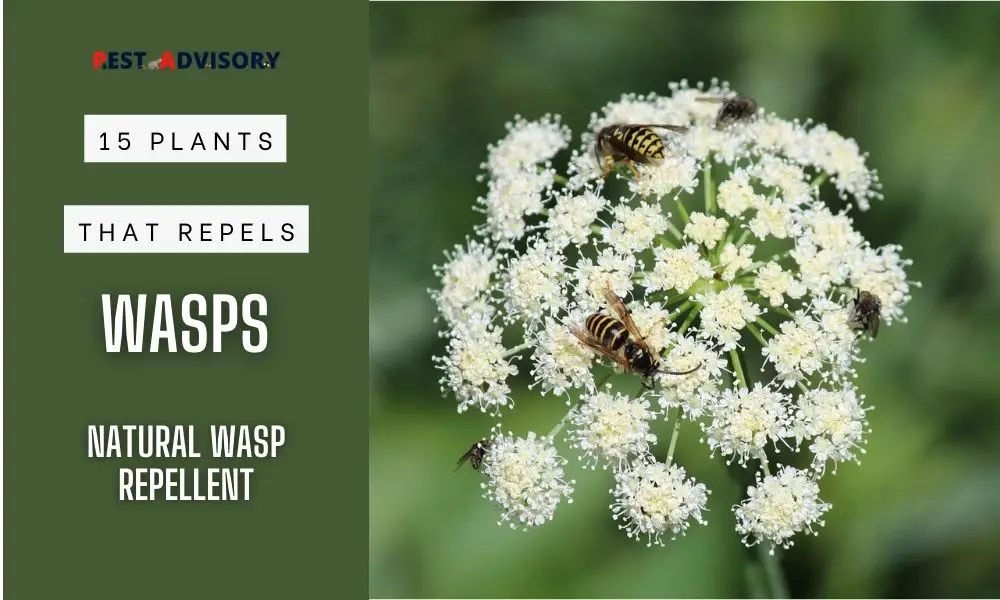It’s the season of the month again when the nice weather entices us to spend time outside in our lawns, outdoor spaces, and backyards.
They serve other good purposes like pollination but are also known for creating a nuisance. The case can get even worse if you are allergic to them.
Fortunately, there are many safe and efficient wasp repellents available that don’t require dangerous chemicals or pesticides.
Important Note: If you're tired of pests and want a reliable solution, then you should definitely consider seeking help from a professional pest control company. DIY solutions can be effective, but if you're dealing with a significant pest infestation, you don't want to rely solely on DIY methods. Pest control companies typically don't charge huge fees. You can fill out this form to receive free quotes from the top local pest control companies, and compare the quotes and see for yourself. Then, finally, your pest problems will be eliminated for good.
This article will demonstrate 15 plants that repel wasps so you can enjoy the outdoors without worrying about getting stung.
These natural wasp repellents are simple to grow, attractive, and will provide a splash of green to your surroundings.
List of Plants That Keep Away Wasps
Following is a list of 15 plants that repel honey bees, wasps, and hornets. Add some to your backyard or lawn and enjoy your time outside throughout the warmer season of the year.
Basil
One of the insects that basil can help keep away is the wasp. Wasps are attracted to sweet smells and odors, which makes basil’s strong scent a great deterrent for these flying pests.
Basil includes natural chemicals known as eugenol and methyl eugenol, which have been shown to repel insects such as wasps.
Some studies suggest that basil can even repel specific types of wasps, such as paper wasps.
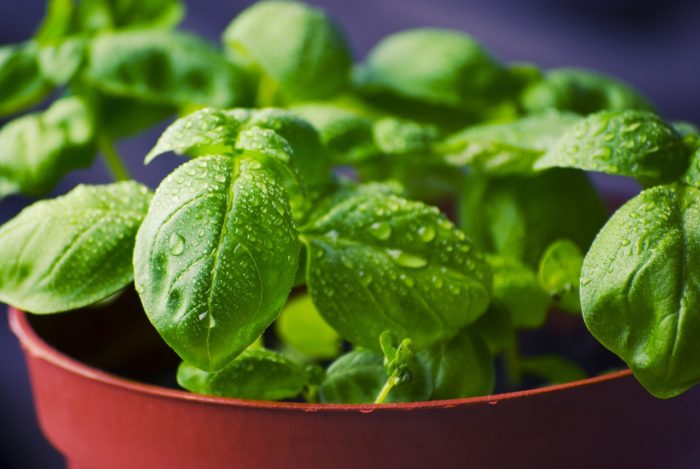
To repel wasps, grow basil in your yard or arrange pots of basil around your home, especially near areas where wasps are likely to congregate, such as near outdoor dining areas or garbage cans.
You may also consider crushing fresh basil leaves and rubbing them on your skin to help repel wasps when spending time outdoors.
Peppermint
It has powerful insect-repellent properties, making it an effective natural solution for keeping wasps away.
Peppermint contains high levels of menthol, which gives it a strong scent that wasps find unpleasant.
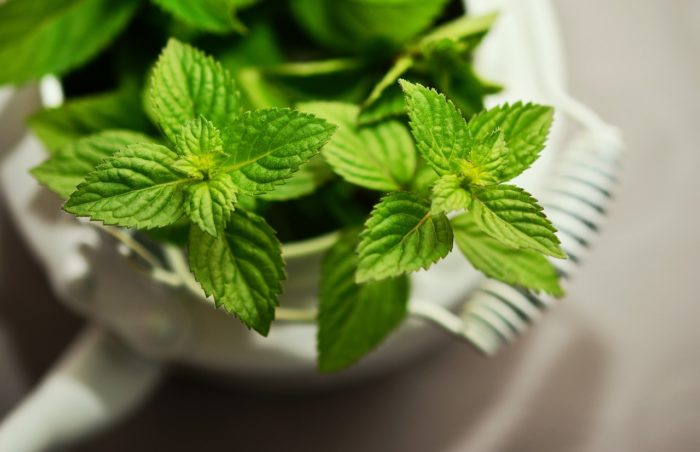
This compound can mask the sweet smells and odors that attract wasps, making them less likely to come around. Peppermint can also help to deter other insects, such as bees and flies.
To use peppermint as a wasp repellent, you can plant it in your garden or place pots of peppermint around your home.
Lemongrass
It is a plant commonly used in food in Asian households. It is also a very effective insect repellent.
Its strong citrusy scent is not only pleasing to humans, but it can also help to deter wasps and other insects.
The oil used in it, citronella, is known to mask the odors that attract insects, including wasps.
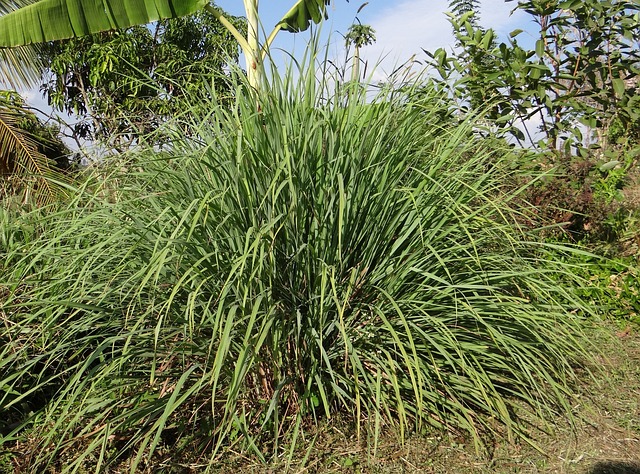
The correct way of using it for the purpose of wasp extermination, place the plant in your garden or around the house.
Additionally, you can use lemongrass essential oil to create a natural wasp-repellent spray. Just mix a few drops of this oil with water and spray in affected areas.
Thyme
It is a common herb that is used for seasoning in cooking, but it also has incredible medicinal and insect-repellent properties.
Thyme contains a natural compound called thymol, which gives it a strong scent that wasps find unpleasant. These keep away insects.
It can mask the odors that attract wasps and make them less likely to come around.
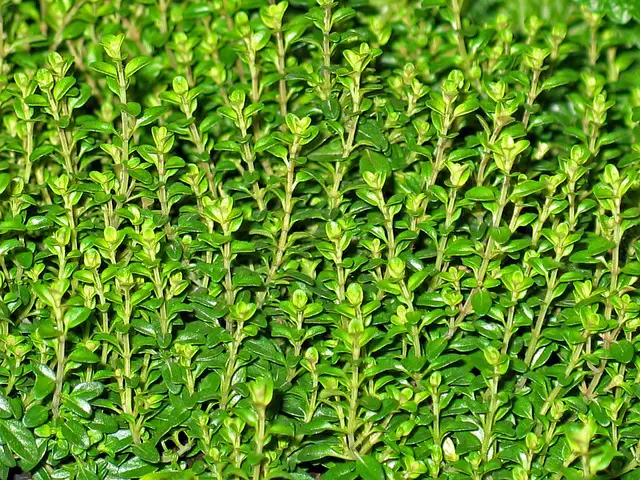
To use thyme as a wasp repellent, you can plant it in your garden or place pots of thyme around your home, particularly near areas where wasps are likely to gather, such as near outdoor dining areas or garbage cans.
You may also consider using thyme oil to create a natural wasp-repellent spray. Simply mix a few drops of thyme oil with water and dish soap in a spray bottle and apply it to areas where wasps are likely to be present.
Citronella
The citronella plant emits a strong lemony smell that masks the odors that attract wasps.
While citronella is commonly associated with mosquito repellent, it can also provide a natural solution for keeping wasps away.
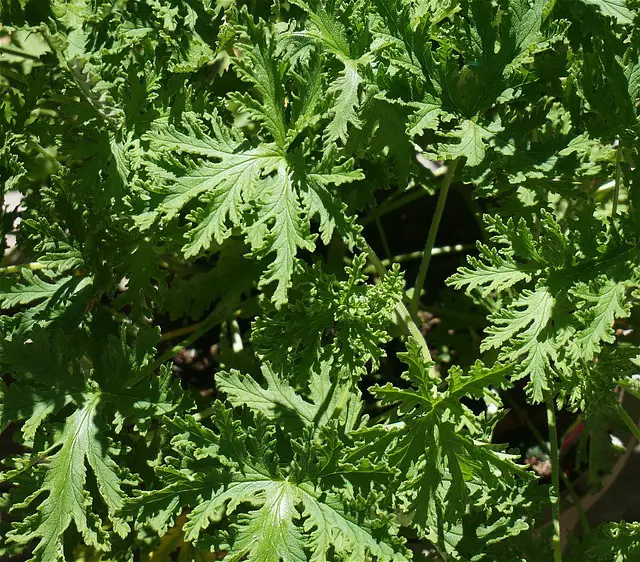
The way to use it is to plant it in your garden or around your home
You may also consider using citronella oil to create a natural wasp-repellent spray. In a spray bottle, combine a couple of drops of citronella oil, water, and detergent soap and spray it on places where wasps are inclined to be present.
Eucalyptus
It is an evergreen plant from Australia. Well, it can be found in other portions of the earth as well.
The plant includes natural chemicals that have been shown to repel a variety of insects, including wasps.
The smell of this oil is so strong that it can easily irritate the wasps.
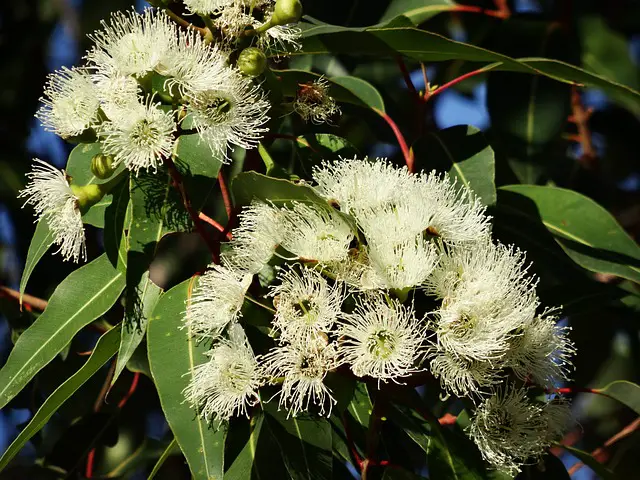
This oil contains cineole and pinene, two compounds that are known for their insect-repelling properties. These compounds can also help to deter other pests, such as mosquitoes and flies.
You may also consider using eucalyptus oil to create a natural wasp-repellent spray. Mix this oil with water and spray in places where wasps are present.
Garlic
The strong odor of garlic is one of the primary reasons that it repels wasps. Garlic contains sulfur compounds that give it a pungent odor that wasps find unpleasant.
This compound can mask the sweet smells and odors that attract wasps, making them less likely to come around.
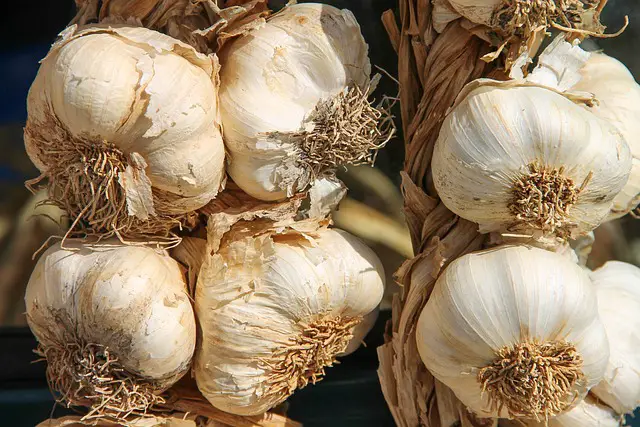
To use garlic as a wasp repellent, you can plant it in your garden or place pots of garlic around your home. Another effective method is to crush garlic cloves and mix them with water to create a natural wasp-repellent spray.
Simply strain the garlic-infused water and add a few drops of dish soap to a spray bottle, then spray this mixture on areas where wasps are likely to gather.
Lavender
Lavender emits a strong floral scent that masks the odors that attract wasps. The plant contains essential oils, such as linalool and camphor, which have insect-repelling properties.
These oils work by disrupting the scent receptors of insects, making it difficult for them to find sources of food and other attractants.
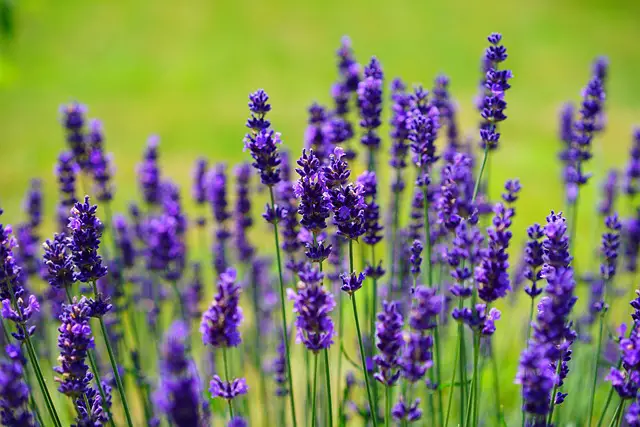
Plant lavender in your garden or keep a potted plant in your house.
You may also consider using lavender oil to create a natural wasp-repellent spray. Simply mix a few drops of lavender oil with water and dish soap in a spray bottle and apply it to areas where wasps are likely to be present.
Rosemary
Rosemary is a woody herb that is commonly used for seasoning in cooking, but it also has significant wasp-repellent properties.
The plant contains natural compounds that have been found to be effective at repelling various insects, including wasps.
The strong, pungent scent of rosemary can help to deter wasps and other pests from entering your yard or garden.
Rosemary contains essential oils, such as camphor and cineol, which have insect-repelling properties.
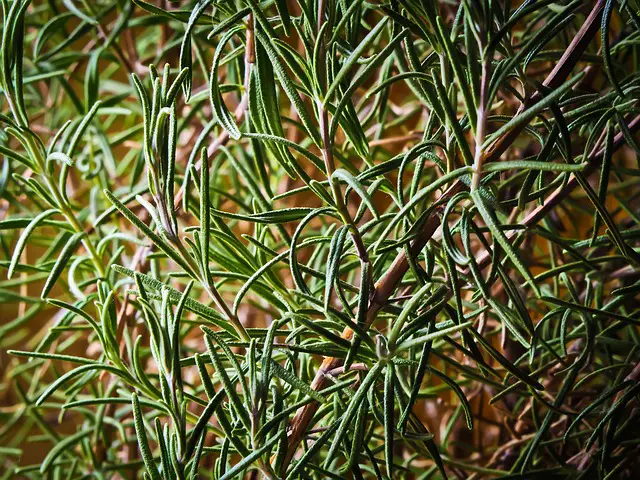
These oils work by disrupting the scent receptors of insects, making it difficult for them to find sources of food and other attractants.
Plant rosemary in your yard or arrange pots of rosemary around your home, especially near areas where wasps are prone to congregate, such as around outside eating areas or trash cans to utilize it as an insect repellent.
You may also consider using rosemary oil to create a natural wasp-repellent spray.
In a spray bottle, combine a couple of drops of rosemary oil, water, and dish soap, and spray it on areas wherever wasps are going to be present.
Geraniums
Geraniums have a strong scent that can mask the odors that attract wasps, making them less likely to gather in your garden or around your home.
In addition, the plant contains geraniol and citronellol, two compounds that are known for their insect-repelling properties.
To use geraniums as a wasp repellent, you can plant them in your garden or use them in pots around your home.
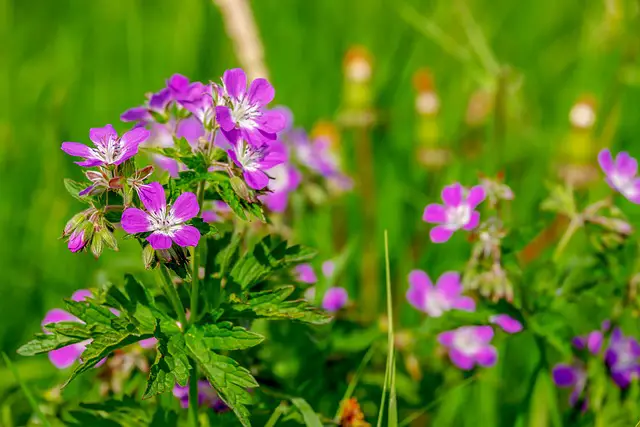
It is best to plant them near outdoor dining areas or garbage cans, where wasps are likely to be present.
You may also consider using geranium oil to create a natural wasp-repellent spray. Simply combine a few drops of geranium oil, water, and dish soap in a spray bottle and spray it in areas where wasps are likely to be found.
Overall, geraniums are a beautiful and multipurpose plant that not only provides beauty to your landscape but also naturally repels wasps and other insects.
Because of its strong insect-repellent characteristics, it is an efficient and secure substitute for chemical insecticides. Geraniums are hardy plants that thrive in USDA Zones 9-12.
Marigolds
Marigolds are a bright and beautiful flowering plant that also has potent wasp-repellent properties. The plant contains compounds that can help to deter a variety of pests, including wasps.
They contain a compound that is naturally occurring called pyrethrum. They have proven properties of insect repellent.
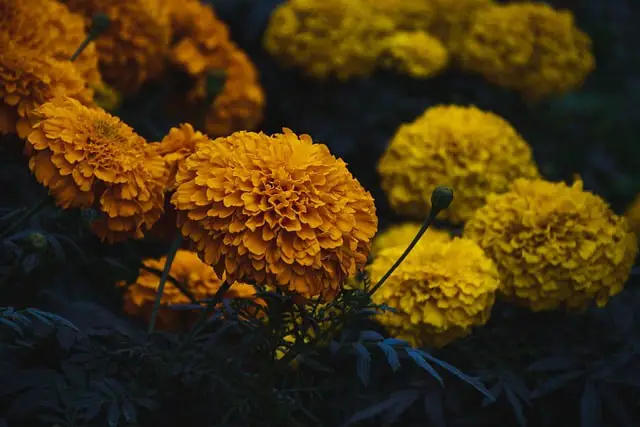
This compound can also work as a natural insect repellent, including against wasps. In addition, marigolds have a strong scent that can mask the smells that attract wasps, making them less likely to gather in areas where they are not wanted.
It is best to plant them near areas where wasps are likely to be present, such as near outdoor dining areas or garbage cans.
They are the ultimate solution for pests as they can repel a variety of insects.
Pennyroyal
Pennyroyal is a plant with strong insect-repellent properties, making it an ideal choice for keeping wasps away.
The oil of this plant is a very good insect exterminator. Wasps practically hate the smell of this plant.
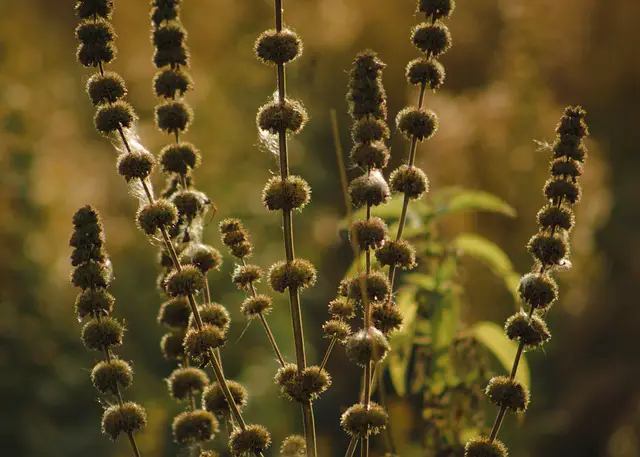
This means that planting Pennyroyal in your garden or placing it in a pot on your patio can help keep wasps away.
As such, it’s recommended to use external applications of Pennyroyal as an insect repellent rather than ingesting the plant or its oil.
Catnip
Catnip is a plant that is known for its ability to attract cats, but it also has wasp-repellent properties.
This plant contains a compound called nepetalactone. This substance is known to be effective in repelling not only mosquitoes but also wasps.
According to studies, nepetalactone is at least as efficient as DEET (a popular synthetic insect repellent) and may be up to ten times more effective in repelling mosquitoes.
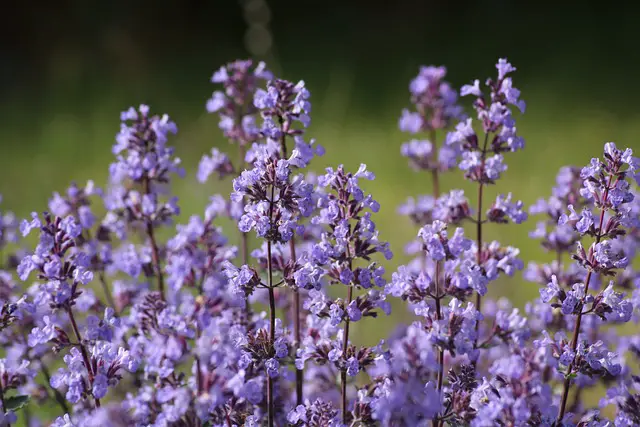
Wasps do not like the smell of this plant and are less likely to be found in the places where this plant is present. They can be kept in a potted plant or container.
You can also make a simple spray by boiling the leaves and stems of the plant in water and then straining the liquid.
Once cooled, you can pour this mixture into a spray bottle and use it to mist areas where wasps tend to gather.
Wormwood
The leaves and stems of the Wormwood plant contain a compound called absinthe, which has a strong scent that is toxic to insects.
This pungent scent alerts bees and wasps of potential danger, so they tend to avoid the area.
Wormwood is very efficient at repelling wasps due to its strong scent, which can overpower their keen sense of smell and make it difficult for them to navigate.
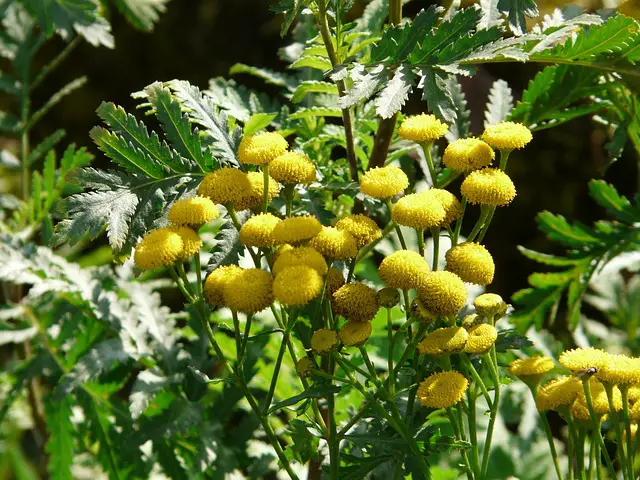
It can be used to remove wasps in many ways. Some of those ways are potpourri and sachets.
Wormwood can be planted in your garden or in a container on your patio to serve as a wasp repellent.
If you don’t have enough space to grow the plant, you can produce a spray out of its essential oil.
Simply mix a few drops of Wormwood oil with water and spray it around areas where wasps tend to gather.
Cucumber
The cucumber is a famous vegetable with numerous culinary uses, but it also has wasp-repellent characteristics.
The natural chemical that cucumber contains is called cucurbitacin. It is the reason for the bitter taste in it. It works as a natural insect repellent.
Wasps are known to dislike the taste of cucurbitacin, so planting cucumber near areas where you sit or scattering cucumber peels around your garden can help deter them.
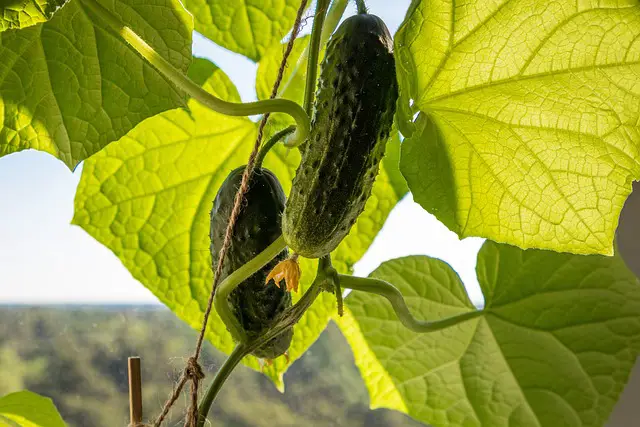
In addition to using fresh cucumber, there are other ways to use this plant as a wasp repellent.
One way is to slice a fresh cucumber and place it on aluminum foil or in an aluminum pie dish.
The chemical reaction produced by the cucumber slices can help keep wasps and other types of bugs away.
You can also mix cucumber juice with water and spray it on areas where wasps tend to gather.
Conclusion
This article shared an in-detail explanation of 15 plants that are good at repelling insects.
So go ahead choose the combination best for you and make your home and surrounding free from those wasps. Other advantages of such plants are that they keep your house aromatic and fresh.
Use combination of plants with other remedies to get rid of wasps.
So, go ahead and try planting some of these natural wasp repellents and enjoy a peaceful and worry-free summer outdoors!

